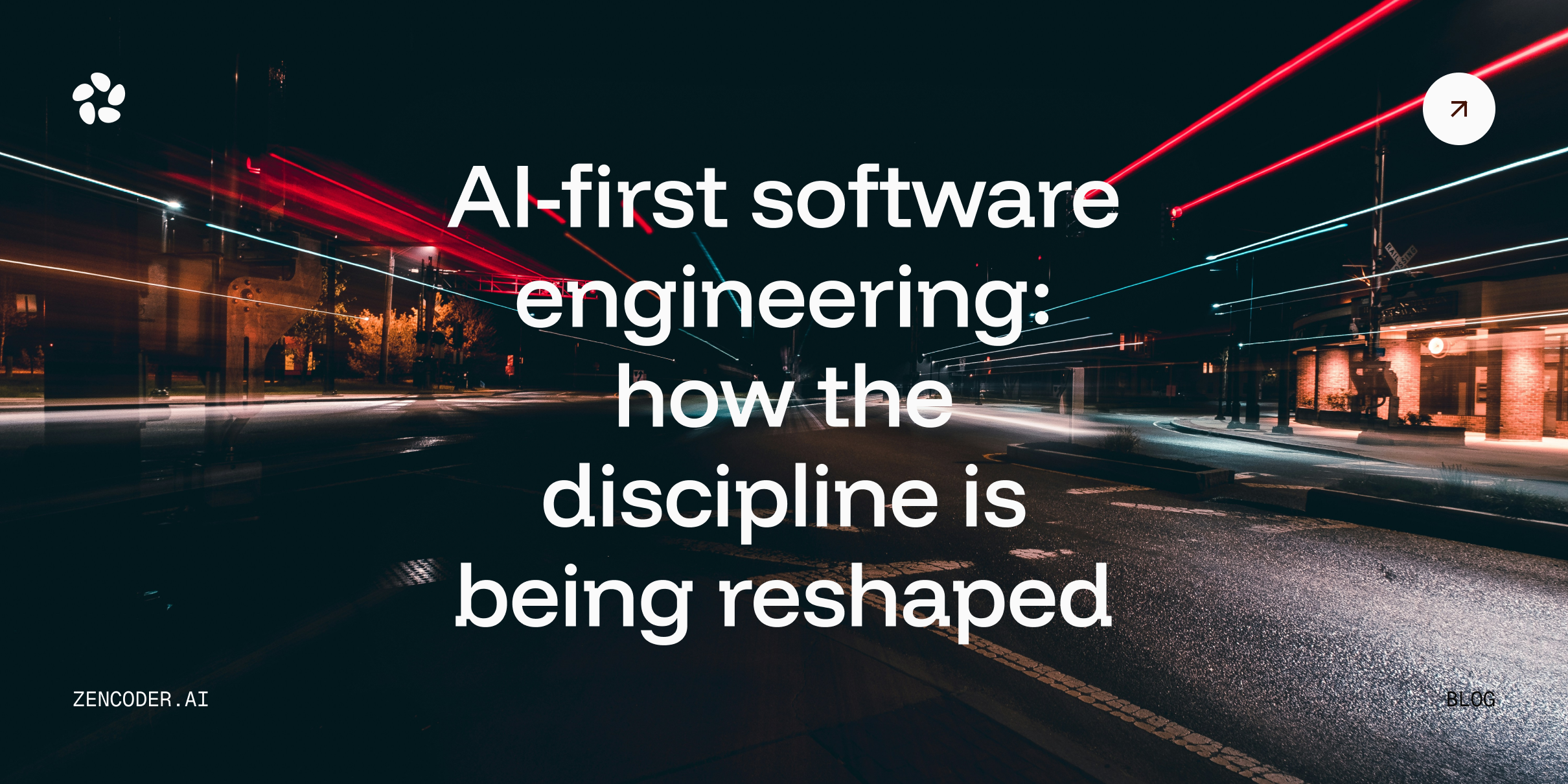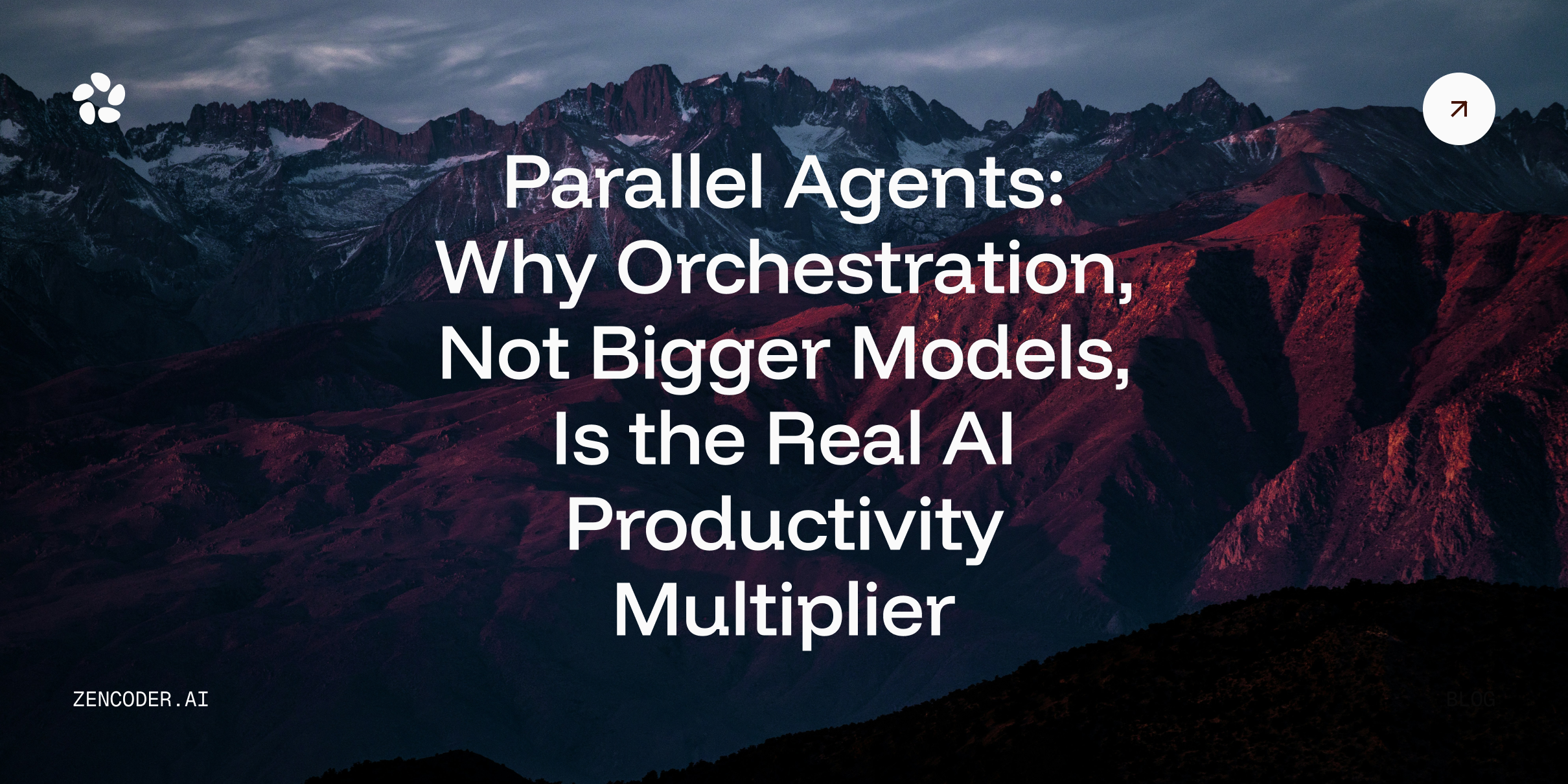This article explores the transformative role of AI in streamlining workflows, improving code quality, and addressing the challenges of cross-platform development. Whether you're a seasoned developer or someone curious about the future of app creation, this guide will provide actionable insights into how AI is revolutionizing the field.
We’ll dive into the current landscape of cross-platform development, examine the role of AI-powered abilities, and discuss the benefits and challenges of integrating AI into development workflows. By the end, you’ll have a clear understanding of how AI is driving innovation and what the future holds for this exciting intersection of technology.
Here’s what you’ll learn here:
- The Impact of AI on Cross-Platform Development Abilities
- The Role of AI in Software Development
- Popular Cross-Platform Development Frameworks
- Challenges in Cross-Platform Development
- How AI is Transforming Cross-Platform Development Abilities
- Benefits of AI in Cross-Platform Development
- Challenges and Limitations of AI in Cross-Platform Development
- Future Trends in AI and Cross-Platform Development
Let’s dive in!
The Impact of AI on Cross-Platform Development Abilities
The software development landscape is constantly evolving, and AI in cross-platform development abilities is at the forefront of this transformation. Cross-platform frameworks like Flutter, React Native, and Xamarin have already revolutionized how developers create applications, enabling them to build apps for multiple platforms using a single codebase. This approach not only saves time but also ensures a consistent user experience across devices.
However, the integration of AI into these frameworks is taking things to the next level. By automating repetitive tasks, optimizing performance, and enhancing code quality, AI is making cross-platform development more efficient and accessible than ever before.
The Role of AI in Software Development
Artificial Intelligence is no longer a futuristic concept; it’s a practical ability that’s reshaping how software is developed. From automating code generation to optimizing testing and deployment, AI is helping developers work smarter, not harder. Abilities like GitHub Copilot and Tabnine are prime examples of how AI can assist in writing cleaner, more efficient code.
By leveraging machine learning algorithms, AI can analyze vast amounts of data to identify patterns, predict potential issues, and provide actionable insights. This allows developers to focus on solving complex problems while AI handles the more mundane aspects of coding and testing.
Popular Cross-Platform Development Frameworks
Frameworks like Flutter, React Native, and Xamarin have become essential abilities for developers. Each offers unique features that cater to different needs:
- Flutter: Known for its rich set of pre-designed widgets and fast rendering engine, Flutter is ideal for creating visually appealing apps. Its "write once, run anywhere" approach ensures consistent performance across platforms, making it a favorite for startups and enterprises alike. Additionally, its support for hot reload accelerates the development process, allowing developers to see changes in real time. Leveraging flutter application development services can enhance the app development experience even further.
- React Native: With a robust ecosystem and strong community support, React Native is a go-to choice for many developers. Its ability to leverage JavaScript, one of the most widely used programming languages, makes it accessible to a broad audience. React Native also allows for seamless integration with native modules, enabling developers to optimize performance for specific use cases.
- Xamarin: Integrated with the .NET ecosystem, Xamarin allows developers to use C# for building native apps, making it a favorite among those familiar with Microsoft technologies. Its ability to share up to 90% of code across platforms significantly reduces development time and costs. Xamarin also provides access to native APIs, ensuring apps deliver a truly native experience.
These frameworks have made cross-platform development more accessible, but they also come with challenges that AI in Cross-Platform Development Abilities is uniquely positioned to address.
Challenges in Cross-Platform Development
Despite their advantages, cross-platform frameworks are not without their challenges. Developers often face issues like:
- Performance Optimization: Ensuring that apps run smoothly across different devices and operating systems can be complex. Variations in hardware capabilities, screen sizes, and platform-specific behaviors often require extensive testing and fine-tuning to deliver a seamless user experience.
- Platform-Specific Issues: Adapting a single codebase to meet the unique requirements of each platform can lead to inconsistencies. For example, certain features or APIs may behave differently on iOS and Android, requiring additional effort to ensure parity across platforms.
- Code Consistency:Maintaining a clean and consistent codebase is crucial but can be difficult when working across multiple platforms. As projects grow in complexity, the risk of introducing redundant or conflicting code increases, which can lead to technical debt and slower development cycles.
This is where AI in cross-platform development abilities comes into play, offering solutions that streamline workflows and enhance productivity.
How AI is Transforming Cross-Platform Development Abilities
AI is reshaping the landscape of cross-platform development, introducing innovative abilities that streamline workflows, enhance productivity, and improve the quality of applications. From code generation to performance optimization, AI in Cross-Platform Development Abilities is becoming an indispensable ability for developers.
Let’s see how.
AI-Powered Code Generation
AI abilities like GitHub Copilot and Tabnine are revolutionizing how developers write code. These abilities can generate platform-specific code from a single codebase, significantly reducing development time and effort. By analyzing existing code and suggesting improvements, AI ensures that the final product is both efficient and error-free. For example, developers can rely on AI to automatically generate boilerplate code, adapt UI components for different platforms, or even refactor legacy codebases to align with modern standards. This not only accelerates development but also minimizes the risk of human error.
Automated Testing and Debugging
Testing is a critical part of the development process, and AI-driven abilities like Testim and Appliabilities are making it easier than ever. These abilities can identify bugs, optimize test coverage, and simulate user interactions across platforms. By automating these tasks, AI ensures that applications are robust and reliable. For instance, AI can perform regression testing across multiple devices, detect edge cases that might otherwise go unnoticed, and even prioritize bugs based on their impact on user experience. This allows developers to focus on delivering high-quality apps without being bogged down by repetitive testing tasks.
Performance Optimization
AI can analyze app performance in real time, providing insights into speed, memory usage, and responsiveness. This allows developers to fine-tune their applications for optimal performance, ensuring a seamless user experience. For example, AI can identify memory leaks, suggest optimizations for rendering pipelines, or recommend caching strategies to improve load times. By leveraging these insights, developers can ensure that their apps perform consistently across a wide range of devices and operating systems.
Natural Language Processing (NLP) for Documentation
AI-driven NLP abilities are transforming how project documentation is created and maintained. These abilities can generate or improve documentation by translating developer requirements into actionable tasks, ensuring that all stakeholders are aligned. For example, AI can automatically generate API documentation, summarize complex codebases, or even create user guides tailored to specific audiences. This not only streamlines communication but also reduces the time developers spend on non-coding tasks, allowing them to focus on building features.
Benefits of AI in Cross-Platform Development
The integration of AI in Cross-Platform Development Abilities offers a wide range of benefits that are transforming how developers build and deliver applications. By automating processes, enhancing code quality, and providing actionable insights, AI is enabling developers to work more efficiently and effectively.
Increased Productivity
AI significantly boosts developer productivity by automating repetitive and time-consuming tasks. For example, AI abilities can generate boilerplate code, refactor existing codebases, and even handle routine tasks like formatting and syntax corrections. This allows developers to focus on creative problem-solving and more complex aspects of app development, such as designing innovative features or optimizing user workflows. By reducing the cognitive load on developers, AI ensures that teams can achieve more in less time.
Enhanced Code Quality
Maintaining high code quality is a critical challenge in cross-platform development, especially when working with large teams or complex projects. AI ensures adherence to coding standards by automatically identifying and correcting errors, enforcing best practices, and suggesting improvements. For instance, AI-driven code review abilities can detect potential bugs, highlight inefficient code, and recommend optimizations. This not only reduces the likelihood of errors but also ensures a consistent and maintainable codebase, which is essential for long-term project success.
Faster Time-to-Market
AI-driven abilities like automated testing and debugging accelerate the development lifecycle, enabling companies to launch products more quickly. By simulating user interactions across multiple platforms, AI can identify and resolve issues early in the development process, reducing the time spent on manual testing. Additionally, AI can prioritize bugs based on their severity and impact, ensuring that critical issues are addressed first. This streamlined approach allows development teams to meet tight deadlines without compromising on quality.
Improved User Experience
AI-driven insights play a crucial role in helping developers create more intuitive and responsive applications. By analyzing user behavior and app performance, AI can provide actionable recommendations for improving the user experience. For example, AI can suggest UI adjustments to enhance usability, optimize app responsiveness by identifying performance bottlenecks, or even predict user needs to deliver personalized experiences. These insights ensure that the final product not only meets but exceeds user expectations, leading to higher satisfaction and engagement.
Challenges and Limitations of AI in Cross-Platform Development
While the advantages of AI in Cross-Platform Development Abilities are undeniable, it is important to acknowledge the challenges and limitations that come with its integration. These obstacles highlight the need for careful implementation and a balanced approach to leveraging AI in development workflows.
Dependence on AI Models
One of the primary challenges is the risk of over-reliance on AI models. While AI can automate many tasks and provide valuable suggestions, it is not infallible. Incorrect code suggestions, misinterpretation of requirements, or overly generic solutions can lead to inefficiencies or even critical errors in the development process. Developers must maintain a level of human oversight to validate AI-generated outputs and ensure that the final product meets quality standards. Striking the right balance between automation and manual intervention is essential to avoid potential pitfalls.
Integration with Existing Workflows
Incorporating AI into established development workflows can be a complex process. Many teams have well-defined processes and abilities that may not seamlessly integrate with AI-driven abilities. For example, introducing AI-powered testing or code generation abilities might require changes to version control systems, CI/CD pipelines, or team collaboration practices. This can lead to initial disruptions and a learning curve for developers. Careful planning, training, and gradual adoption are necessary to ensure that AI enhances rather than disrupts existing workflows.
Ethical and Security Concerns
The use of AI in cross-platform development raises important ethical and security concerns. AI-driven abilities often rely on large datasets, which may include sensitive or proprietary information. Ensuring data privacy and security is critical to maintaining trust among users and stakeholders. Additionally, questions about the ethical use of AI—such as bias in AI models or the potential for misuse—must be addressed. Developers and organizations need to implement robust security measures, adhere to data protection regulations, and establish clear ethical guidelines for AI usage.
Future Trends in AI and Cross-Platform Development
The future of AI in Cross-Platform Development Abilities is filled with exciting possibilities, as emerging trends continue to reshape how applications are built and delivered. These advancements promise to make development more accessible, efficient, and innovative, paving the way for a new era of software creation.
AI-Driven Low-Code/No-Code Platforms
AI-powered low-code and no-code platforms are revolutionizing the software development landscape by democratizing access to app creation. These platforms enable individuals with little to no programming experience to build functional applications using intuitive drag-and-drop interfaces and AI-driven automation.
By simplifying complex coding tasks, AI allows developers and non-developers alike to focus on creativity and problem-solving. In cross-platform development, these platforms are particularly valuable, as they can automatically generate code optimized for multiple platforms, significantly reducing development time and effort.
Low-code development platforms take this a step further by providing easy-to-use visual tools and ready-made components. This makes it simple for both business users and developers to collaborate and quickly build scalable applications, helping organizations stay agile and innovative in a fast-paced digital world.
Advanced AI Models
As AI continues to evolve, the development of more advanced models will unlock new possibilities for tackling complex challenges in cross-platform development. Future AI models will be capable of understanding context at a deeper level, enabling them to generate more accurate and platform-specific code, predict potential issues before they arise, and even suggest innovative solutions to design and performance problems. These models will also enhance abilities like natural language processing (NLP), allowing developers to describe features in plain language and have AI generate the corresponding code or prototypes. This evolution will further streamline workflows and empower developers to handle increasingly sophisticated projects.
Collaboration Between AI and Humans
The future of cross-platform development will not be about replacing developers with AI but rather fostering a collaborative relationship between AI and human creativity. Striking the right balance between automation and human input will be key to driving innovation. AI will handle repetitive, time-consuming tasks, such as code generation, testing, and debugging, while developers focus on high-level design, strategy, and creative problem-solving. This synergy will enable teams to deliver more innovative and user-centric applications, faster and with greater precision.
Conclusion
AI is transforming the way we approach cross-platform development, offering abilities and insights that enhance efficiency, improve code quality, and enable smarter workflows. While challenges remain, the potential benefits far outweigh the drawbacks. By embracing AI in cross-platform development abilities, developers can create more innovative and accessible software solutions, paving the way for a future where technology serves humanity more effectively.
As we move forward, it’s essential to remain informed about the limitations and ethical implications of AI. By doing so, we can harness its full potential while ensuring that it aligns with our values and goals.
Ready to put these ideas into practice? Try out Zencoder and share your experience by leaving a comment below. Don’t forget to subscribe to Zencoder to stay informed about the latest AI-driven strategies for improving your code governance. Your insights, questions, and feedback can help shape the future of coding practices.
Latest Reads on the Zencoder Blog:


_%20The%20Engineering%20Method%20AI%20Needed%20(1).webp)
